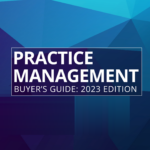
Restraining Trade
//
 Normalcy is returning to global trade, as evidenced by the return of physical attendees to the Canton Fair after a multiyear COVID-19 induced break. In the words of the Chinese government: “As China has dynamically optimized and adjusted its COVID-19 prevention measures, Chinese and overseas enterprises are now eligible to participate in the fair offline, so it will fully resume offline activities in the spring of this year,” with estimates that “more than 30,000 Chinese and overseas enterprises will take part in the trade fair” this year.
Normalcy is returning to global trade, as evidenced by the return of physical attendees to the Canton Fair after a multiyear COVID-19 induced break. In the words of the Chinese government: “As China has dynamically optimized and adjusted its COVID-19 prevention measures, Chinese and overseas enterprises are now eligible to participate in the fair offline, so it will fully resume offline activities in the spring of this year,” with estimates that “more than 30,000 Chinese and overseas enterprises will take part in the trade fair” this year.
Put simply, the event is being touted as bigger and better than ever before, with more exhibition space as well as new categories of products available for ordering by aspiring importers of Chinese products. In fact, this year’s edition is still ongoing, with phase 3 scheduled to conclude later this week.
googletag.cmd.push( function() { // Display ad. googletag.display( "div-id-for-top-300x250" ); });The Canton Fair dates back to 1957 and is the premiere biyearly showcase for Chinese manufacturers to showcase their wares. The event is organized into three phases, each directed to highlighting different categories of goods, from textiles to what China Daily refers to as goods for the “”silver-haired” economy that caters to the old-age people.” While the Canton Fair’s resumption is undoubtedly good news for U.S. consumers, challenges still remain for attendees, with available flights to China still hovering around a quarter of their pre-COVID frequency. Despite the logistical hurdles, I am sure that IP folks with an anti-counterfeiting bent will do their best to attend, as will representatives from concerned IP owners interested in rooting out potential infringing products.
 Sponsored You, Too, Can ‘Recession Proof’ Your Firm. Here’s How. With today’s practice management tech, it’s easier than you think. Download our free Practice Management Buyer’s Guide here. From Above the Law
Sponsored You, Too, Can ‘Recession Proof’ Your Firm. Here’s How. With today’s practice management tech, it’s easier than you think. Download our free Practice Management Buyer’s Guide here. From Above the Law Trade shows like the Canton Fair have long been considered hotbeds for the discovery of infringing activity by a patent owner’s competitors, with similar events in the U.S. being no exception. Over the years, I have been involved in trade show enforcement activities on behalf of patent-owning clients, an experience that many IP practitioners have probably also had. In a typical scenario, a patent owner is concerned that an infringing competitor may be marketing infringing wares at an industry trade show. Normally, if the competitor is also U.S.-based, there may not be an acute need to take action around the trade show itself, absent compelling circumstances. Yet, if the infringer is based overseas and the trade show sales provide a basis for personal jurisdiction that may otherwise be difficult to establish, occasion can arise to have an investigator purchase, or at least order, infringing product at the trade show itself — followed immediately, of course, by a request for expedited legal action from the local district court. There are many possible permutations, but the key is that trade shows command the attention of IP owners, not just sellers and attendees.
A recent decision out of the CDCA helps bring the issues that can arise around accused infringement at trade shows into focus. The trade show in question is the New York Society of Cosmetic Chemists’ Suppliers’ Day event, scheduled to start at the Javits Center on the day this column will be published, May 2, 2023. A showcase for innovative products underlying the global beauty industry, the event is also the subject of a brewing dispute between cosmetic chemical supplier, Inolex, and its Los Angeles-based competitor, AE Chemie. On April 26, Inolex filed a complaint, accompanied by an ex parte request for a temporary restraining order, asserting two patents that it alleged were infringed by AE Chemie’s AE Preserve CG2 product. In the complaint, Inolex alleged that it received no response to a letter sent from its counsel to AE Chemie’s president, precipitating its aggressive enforcement effort.
googletag.cmd.push( function() { // Display ad. googletag.display( "div-id-for-middle-300x250" ); }); googletag.cmd.push( function() { // Display ad. googletag.display( "div-id-for-storycontent-440x100" ); }); googletag.cmd.push( function() { // Display ad. googletag.display( "div-id-for-in-story-youtube-1x1" ); });In its TRO application, Inolex asked that the court intervene to stop AE Chemie from showcasing the alleged infringing product at the the New York Suppliers’ Day event. It also requested that the court issue an order to show cause why a preliminary injunction should not issue against AE Chemie. Turning to Inolex’s requests just a day after they were filed — without AE Chemie even filing a response — the CDCA’s Hon. Andre Birotte Jr. declined to issue the TRO, relying in part on a conclusion that Inolex’s supplied claim charts were insufficient to demonstrate a clear likelihood of infringement. In particular, the court faulted the cursory infringement analysis supplied by an Inolex marketing executive for not suggesting “a likelihood that the specific claim elements (e.g. rations) are present.”
With respect to the trade show, Inolex’s declarant also argued that refusing the TRO would result in irreparable harm, such that allowing AE Chemie to market the accused product “would permit AE Chemie to promote and/or sell its infringing product to key customers with whom Inolex has built significant goodwill over the past decade.” But the court rejected that argument as embodying speculative “predictions” that did not support a conclusion of irreparable harm, especially “where Inolex does not explain why monetary relief would be insufficient to compensate it for lost profits from infringing sales.” As a result, the court rejected Inolex’s request for a TRO. At the same time, the court acknowledged the possibility that Inolex could prove up the required showing for a preliminary injunction. As a result, the court set an aggressive schedule for the preliminary injunction briefing.
Sponsored Sponsored Making History With Shepard’s Citations From Ethan Beberness
Sponsored Making History With Shepard’s Citations From Ethan Beberness  Sponsored ChatGPT Draws State Lawmakers’ Attention To AI ChatGPT and other AI models have drawn a great deal of public attention since being introduced last year—state lawmakers are taking notice too. From Korey Clark, Editor, State Net Capitol Journal™
Sponsored ChatGPT Draws State Lawmakers’ Attention To AI ChatGPT and other AI models have drawn a great deal of public attention since being introduced last year—state lawmakers are taking notice too. From Korey Clark, Editor, State Net Capitol Journal™  Sponsored You, Too, Can ‘Recession Proof’ Your Firm. Here’s How. With today’s practice management tech, it’s easier than you think. Download our free Practice Management Buyer’s Guide here. From Above the Law
Sponsored You, Too, Can ‘Recession Proof’ Your Firm. Here’s How. With today’s practice management tech, it’s easier than you think. Download our free Practice Management Buyer’s Guide here. From Above the Law  Sponsored Navigating Economic Uncertainty: 6 Tips To Keep Your Investments On Track How you can get through current challenges while advancing long-term goals. From Trion Properties
Sponsored Navigating Economic Uncertainty: 6 Tips To Keep Your Investments On Track How you can get through current challenges while advancing long-term goals. From Trion Properties Ultimately, this interesting competitor case illustrates the challenges for patent owners in terms of taking proactive action to stop alleged infringement. There is no doubt that Inolex would have been in a better position had AE Chemie been restrained from marketing the accused infringing product at this week’s show. But its showing in support of the TRO was not enough to sway the court, so there is a good chance that AE Chemie will take the opportunity to try to sell the product at the trade show. While I don’t plan to attend this particular event — or to hop on a plane to Guangzhou to catch the Canton Fair’s closing moments — the importance of trade shows in terms of marketing products of all types should not be underestimated. And where there are sales there are always temptations to infringe and motivations to enforce existing IP. All things considered, however, Judge Birotte’s decision is of most value because it reminds us of the high hurdles patent owners face when trying to restrain trade.
Please feel free to send comments or questions to me at [email protected] or via Twitter: @gkroub. Any topic suggestions or thoughts are most welcome.
googletag.cmd.push( function() { // Display ad. googletag.display( "div-id-for-bottom-300x250" ); });Gaston Kroub lives in Brooklyn and is a founding partner of Kroub, Silbersher & Kolmykov PLLC, an intellectual property litigation boutique, and Markman Advisors LLC, a leading consultancy on patent issues for the investment community. Gaston’s practice focuses on intellectual property litigation and related counseling, with a strong focus on patent matters. You can reach him at [email protected] or follow him on Twitter: @gkroub.
Sponsored Sponsored Navigating Economic Uncertainty: 6 Tips To Keep Your Investments On Track How you can get through current challenges while advancing long-term goals. From Trion Properties
Sponsored Navigating Economic Uncertainty: 6 Tips To Keep Your Investments On Track How you can get through current challenges while advancing long-term goals. From Trion Properties  Sponsored The Ultimate Guide To eDiscovery With Google Workspace And Google Vault An effective team must be well-equipped to handle the unique challenges these tools present. From Onna and Above The Law Topics
Sponsored The Ultimate Guide To eDiscovery With Google Workspace And Google Vault An effective team must be well-equipped to handle the unique challenges these tools present. From Onna and Above The Law Topics Canton Fair, Gaston Kroub, Intellectual Property
Introducing Jobbguru: Your Gateway to Career Success
The ultimate job platform is designed to connect job seekers with their dream career opportunities. Whether you're a recent graduate, a seasoned professional, or someone seeking a career change, Jobbguru provides you with the tools and resources to navigate the job market with ease.
Take the next step in your career with Jobbguru:
Don't let the perfect job opportunity pass you by. Join Jobbguru today and unlock a world of career possibilities. Start your journey towards professional success and discover your dream job with Jobbguru.
Originally posted on: https://abovethelaw.com/2023/05/restraining-trade/